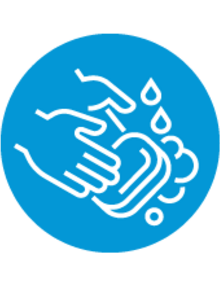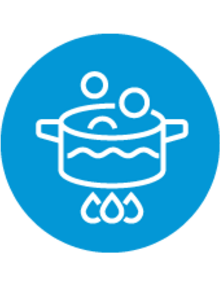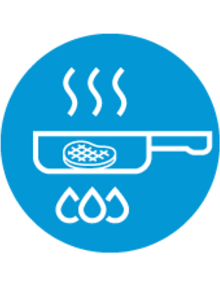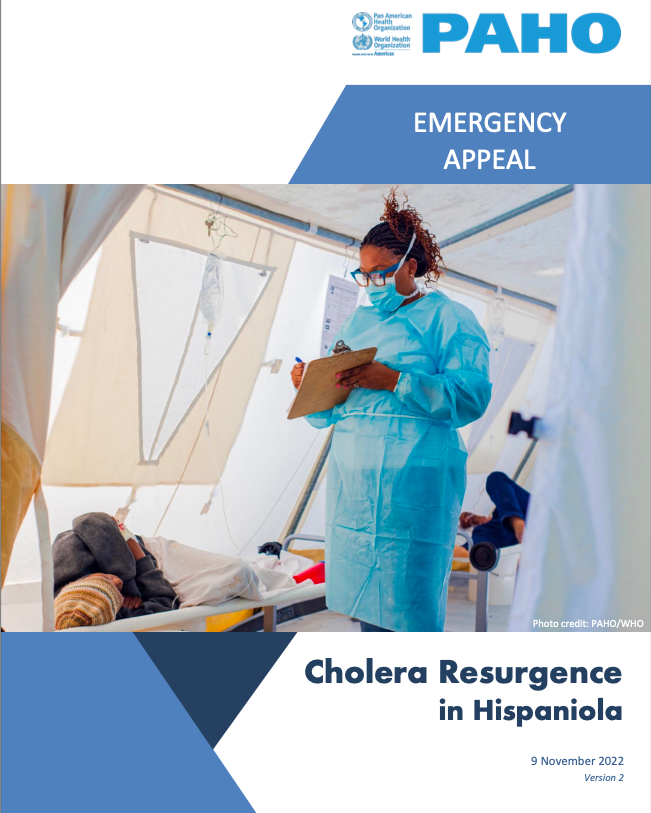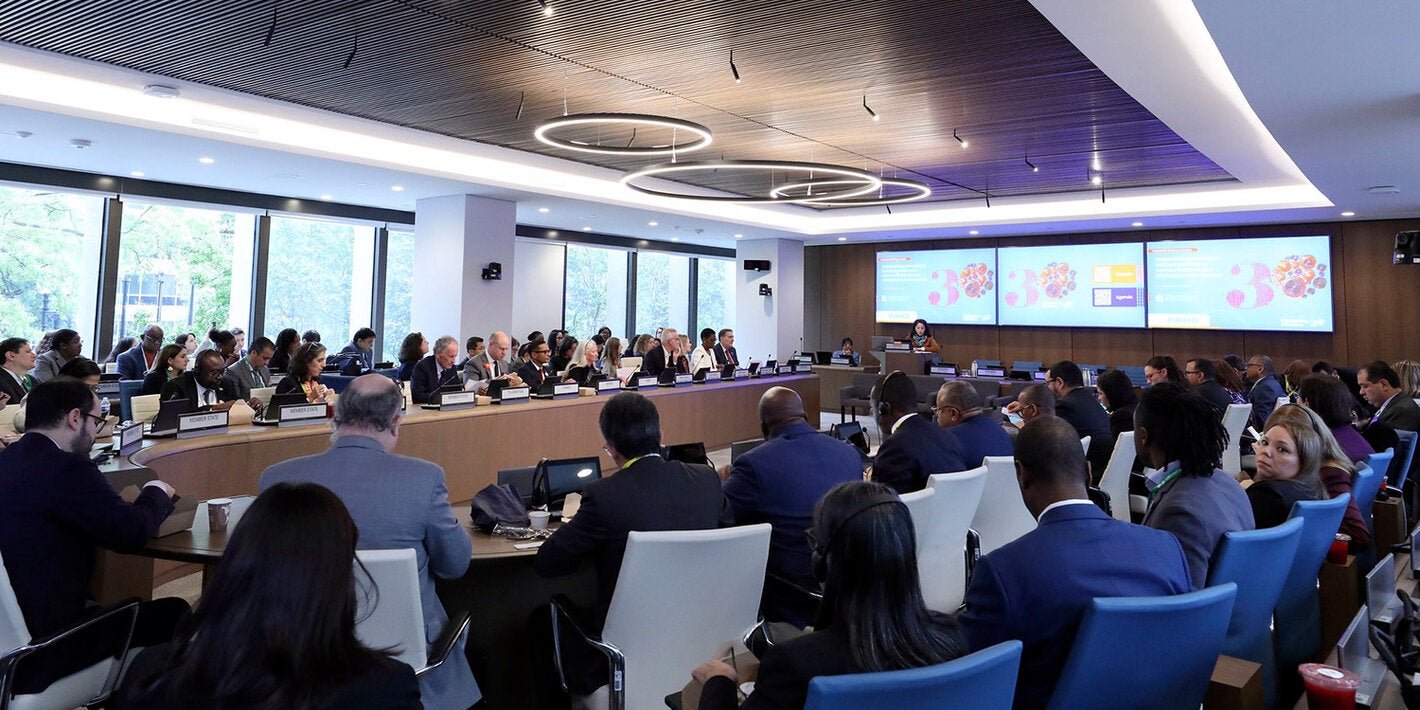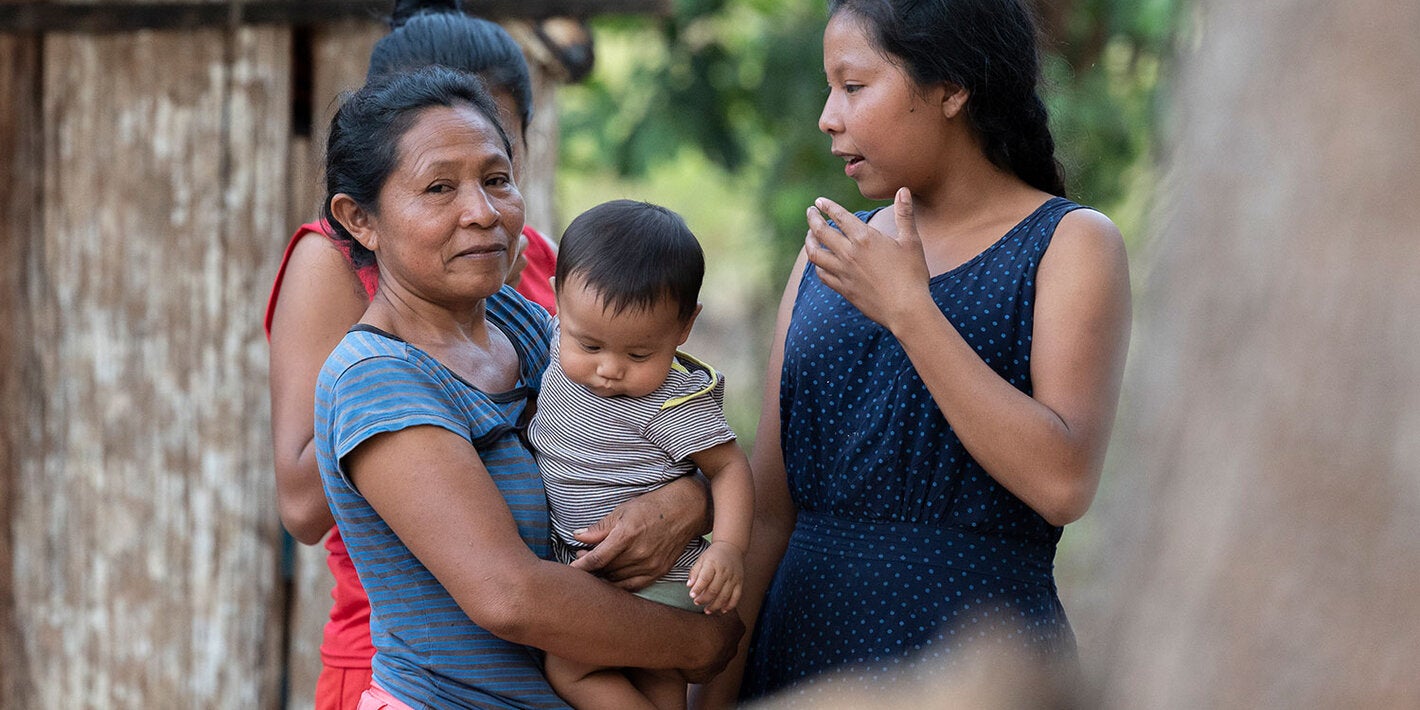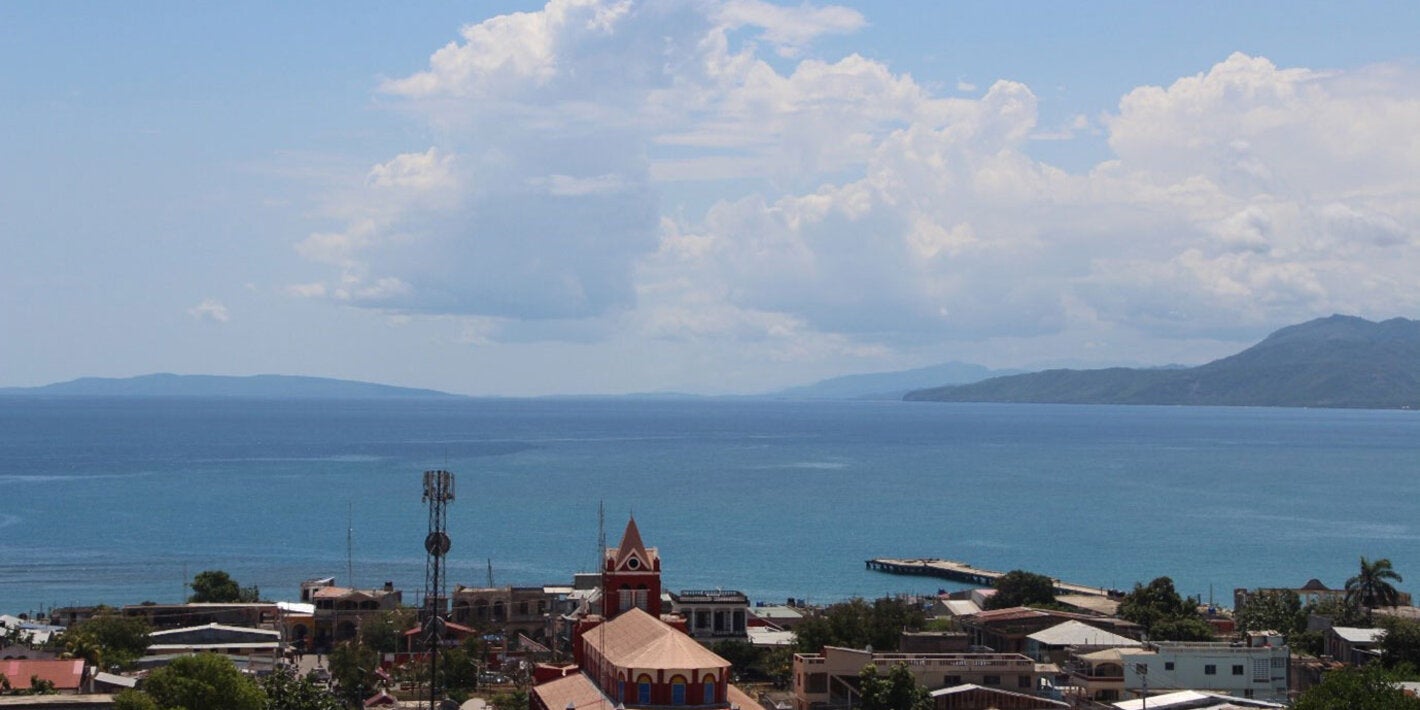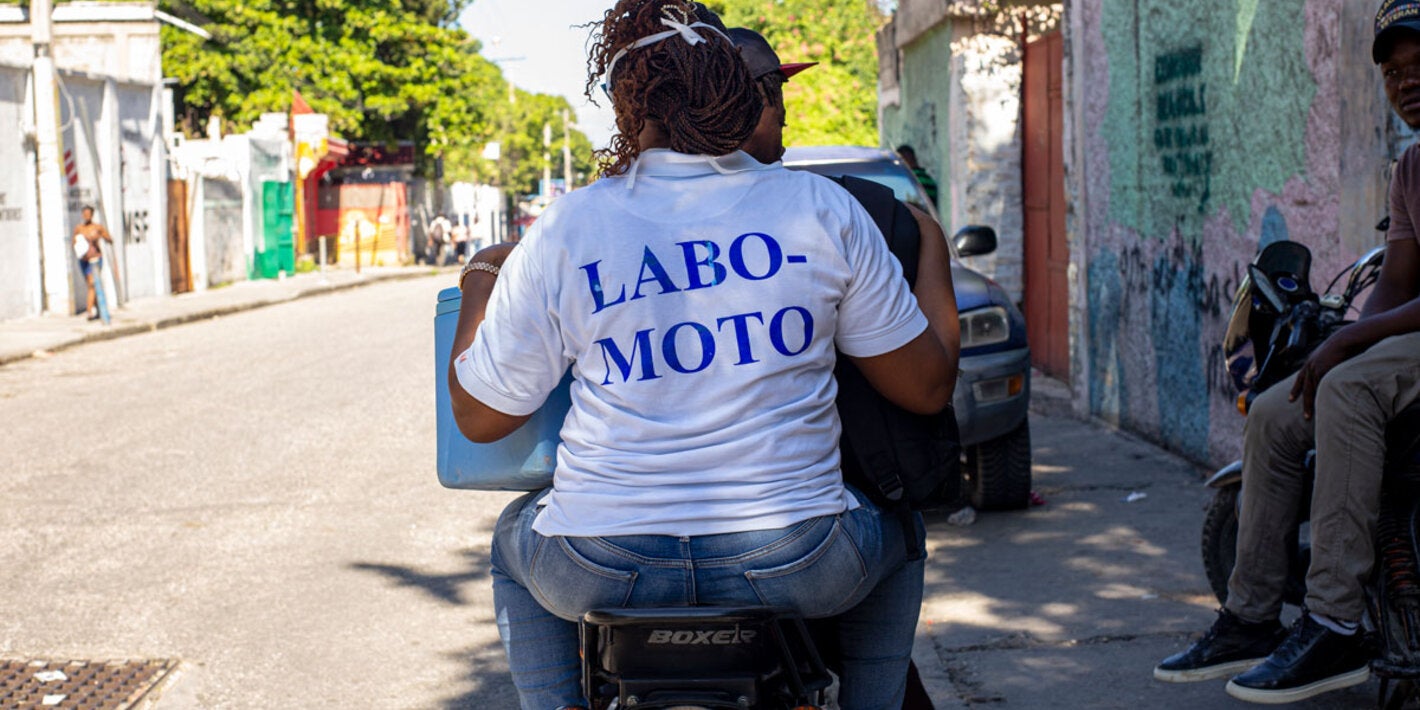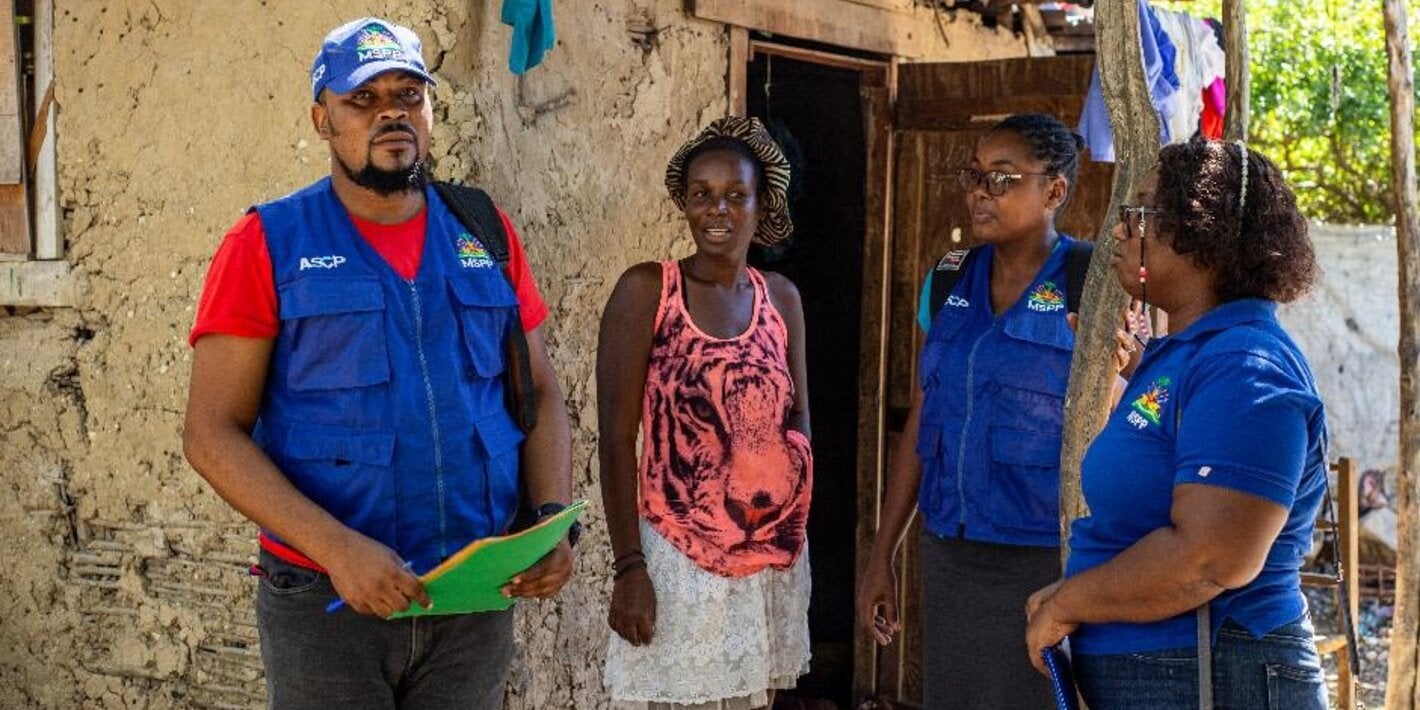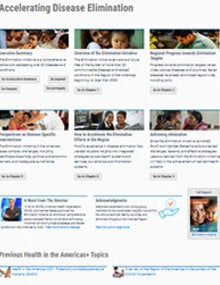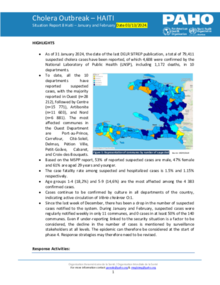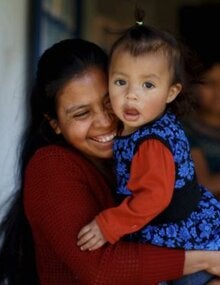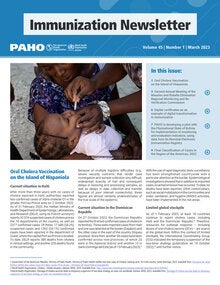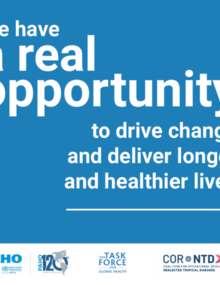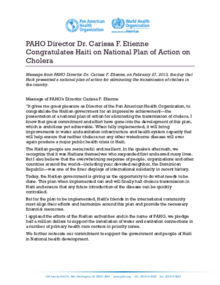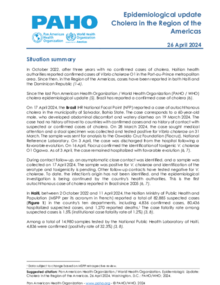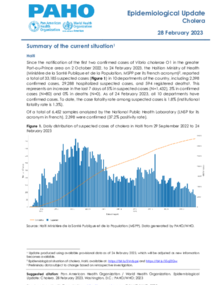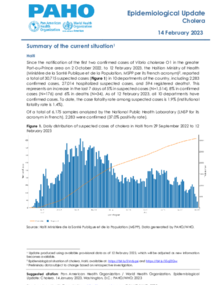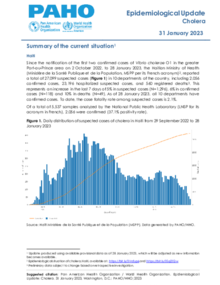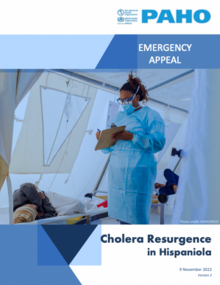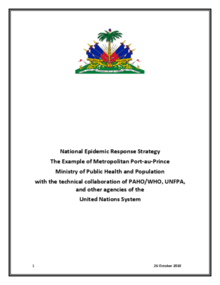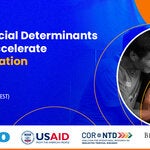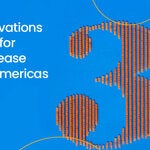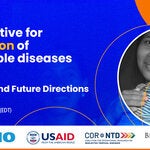EPIDEMIOLOGICAL SITUATION HAITI CRISIS
What is?
Cholera is an acute diarrheal infection caused by ingestion of food or water contaminated with the bacterium Vibrio cholerae. It affects both children and adults and can kill within hours. It has a short incubation period, ranging between two hours and five days. People with low immunity, such as malnourished children or people living with HIV, are at greater risk of death if infected. Person-to-person transmission is not common.
Symptoms
The bacterium produces an enterotoxin that causes copious, painless, watery diarrhea that can quickly lead to severe dehydration and death if treatment is not promptly given. Vomiting also occurs in most patients.
Prevention and control
Cholera continues to pose a public health threat to countries in the Region and is a key indicator of the lack of social development. While it does not pose a threat to countries with adequate sanitation and access to safe drinking water, the disease remains a challenge for countries where these conditions are not yet present.
The key to mitigating cholera outbreaks, controlling the disease when it becomes endemic, and reducing mortality continues to be a multidisciplinary approach to prevention, preparedness, and response, coupled with a robust surveillance system for timely case detection.
Treatment
Cholera is a disease that responds satisfactorily to medical treatment. The first goal of treatment is to replace fluids lost through diarrhea and vomiting. Most cases can be successfully treated by prompt administration of oral rehydration salts (ORS).
More information on the technical resources section.


